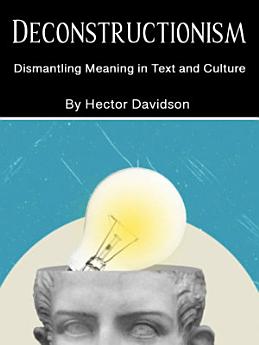Deconstructionism: Dismantling Meaning in Text and Culture
About this ebook
The foundational work of Jacques Derrida is central to deconstructionism. His concept of différance (a term he coined in 1968) highlighted the ways in which meaning is always deferred and never fully attainable. Derrida’s analysis of language showed that words and concepts derive meaning not from a stable, inherent essence, but from their relationships with other words. In this sense, meaning is always in flux, and any attempt to pin it down is doomed to fail. Derrida’s critique of binary oppositions—such as presence/absence, speech/writing, and truth/falsehood—argued that these pairs are not neutral but are hierarchically structured, with one term always subordinating the other. Through works like De la grammatologie (1967) and La Voie et le Voice (1967), Derrida redefined how we understand texts, insisting that they are always open to multiple interpretations.








